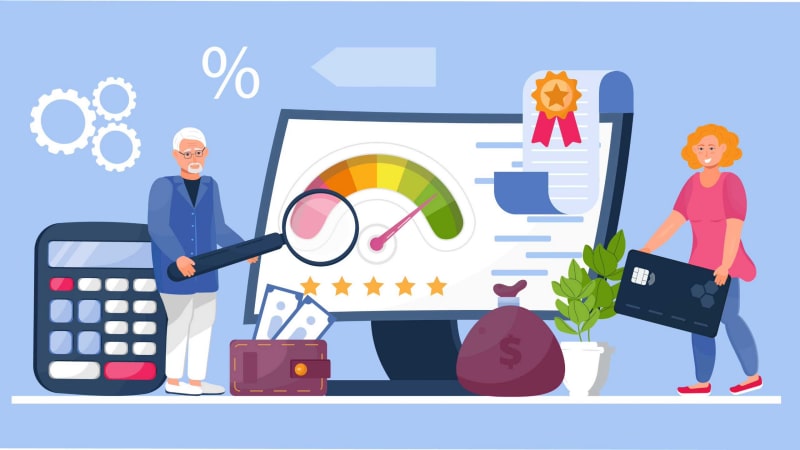Is a 900 credit score possible?

Highlights:
- While older models of credit scores used to go as high as 900, you can no longer achieve a 900 credit score.
- The highest score you can receive today is 850.
- Anything above 781-800 is considered an excellent credit score.
A credit score of 900 is not possible, but older scoring models that are no longer used once went up to 900 or higher. The highest possible credit score you can acheive now is 850. If you’re curious about your current credit score and how you may achieve a higher one you can enroll in Chase Credit Journey®, a free, online credit monitoring tool available to Chase and non-Chase customers.
In this article, we will review:
- What the highest credit score is
- Credit score ranges by scoring model
- What factors affect your credit score?
- Benefits of having an exceptional score
What is the highest credit score?
According to the current scoring models, the highest credit score you can receive is 850, but essentially any score in the 800 range is considered to be an exceptional score. There may be some light differences when it comes to specific ranges for both the VantageScore® and the FICO score®. Let’s review them below.
Credit score ranges by scoring model
Both the VantageScore and FICO score models range from a low of 300 to a high of 850. They are both categorized into ranges from low to high credit scores. As you can see in the scoring models below, achieving a 900 score is not possible today.
The VantageScore credit score ranges are:
- Excellent: 781 to 850
- Good: 661 to 780
- Fair: 601 to 660
- Poor: 500 to 600
- Very Poor: 300 to 499
For FICO, the credit score ranges are:
- Exceptional: 800+
- Very Good: 740 to 799
- Good: 670 to 739
- Fair: 580 to 669
- Poor: 579 and below
What factors affect your credit score?
A credit score is calculated based on a variety of factors. These include, but are not limited to:
- Payment history: This factor represents 40% of your VantageScore and 35% of your FICO score. This accounts for the consistency and timeliness of your bill payments over time.
- Credit utilization: This segment accounts for 20% of your VantageScore and 30% of your FICO score. Credit utilization tallies the amount you owe compared to the credit you have available across all open credit accounts.
- Length of credit history: This category adds up to 15% of value toward your VantageScore and FICO score. This segment considers the age of your oldest and youngest accounts. Credit agencies also factor the average age of all your accounts into this segment. They may note your usage rate for these accounts as well.
- Credit mix: Credit mix indicates the types of credit you have. These may include installment loans, credit cards or mortgages, but it's not necessary to have all kinds of credit. It may be beneficial for your score if you have more than one. Credit bureaus often look to see if you have a mix of revolving loans and installment loans.
- New credit accounts: This includes the total number of new credit accounts and loans you’ve opened or applied for recently. Note that opening too many accounts at the same time can work against you here.
Benefits of having an exceptional score
You don’t need to have a perfect score. Having a good score may help you enjoy the benefits described below:
- Having more room to negotiate for better terms/rates
- Eligibility for more premium credit cards that could come with better earning rewards, perks and special benefits on travel
- Receiving higher credit limits that grant you more purchasing power
- Higher odds of approval for important life decisions like renting an apartment
- A good impression on a potential employer who may run a credit check
Remember, a "perfect" score may be highly unlikely for you to achieve no matter which scoring model is used. To land in the top range — and be considered "exceptional” by the credit bureaus — there are some financial practices you may want to meet on a consistent basis, such as:
- Having a strong payment history
- Maintaining a low credit utilization ratio
- Having no derogatory marks such as late payments
- Keeping your credit cards’ accounts open and active for a long time
In summary
While 900 is no longer a credit score you can achieve today, you can still put in your best efforts to achieve an exceptional score of 800 or higher. Whether you’re looking to improve your score over time or challenge yourself to achieve something exceptional, enrolling in Credit Journey® can help you track your progress. Remember, your overall financial behavior and relationship with credit are key factors in helping you achieve your desired credit score.



